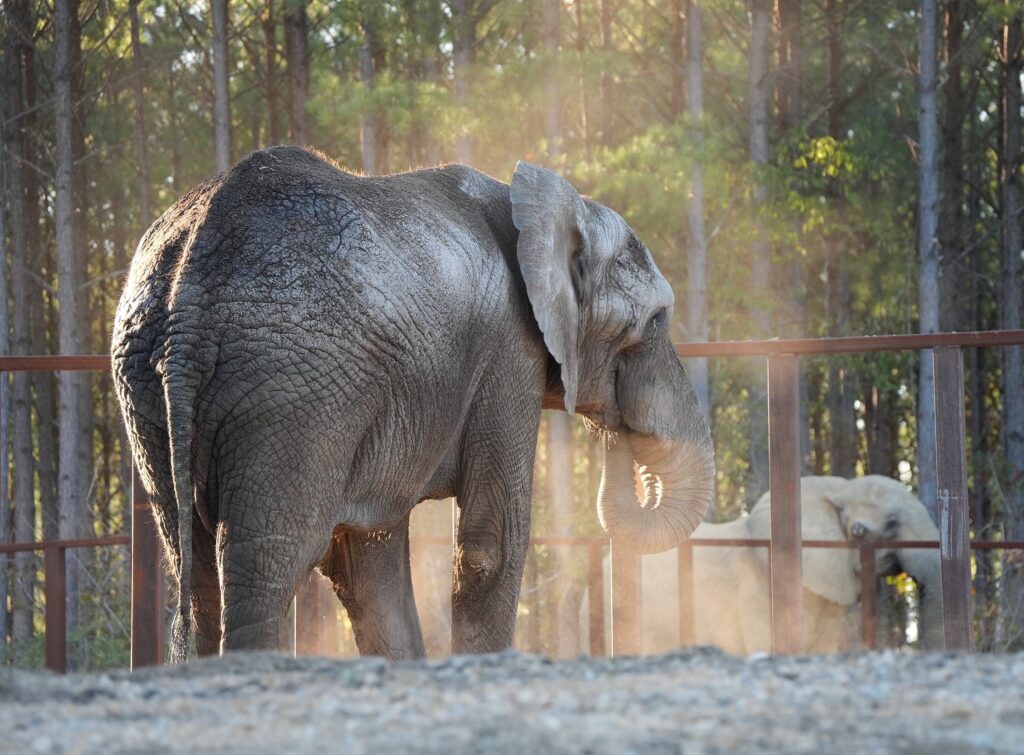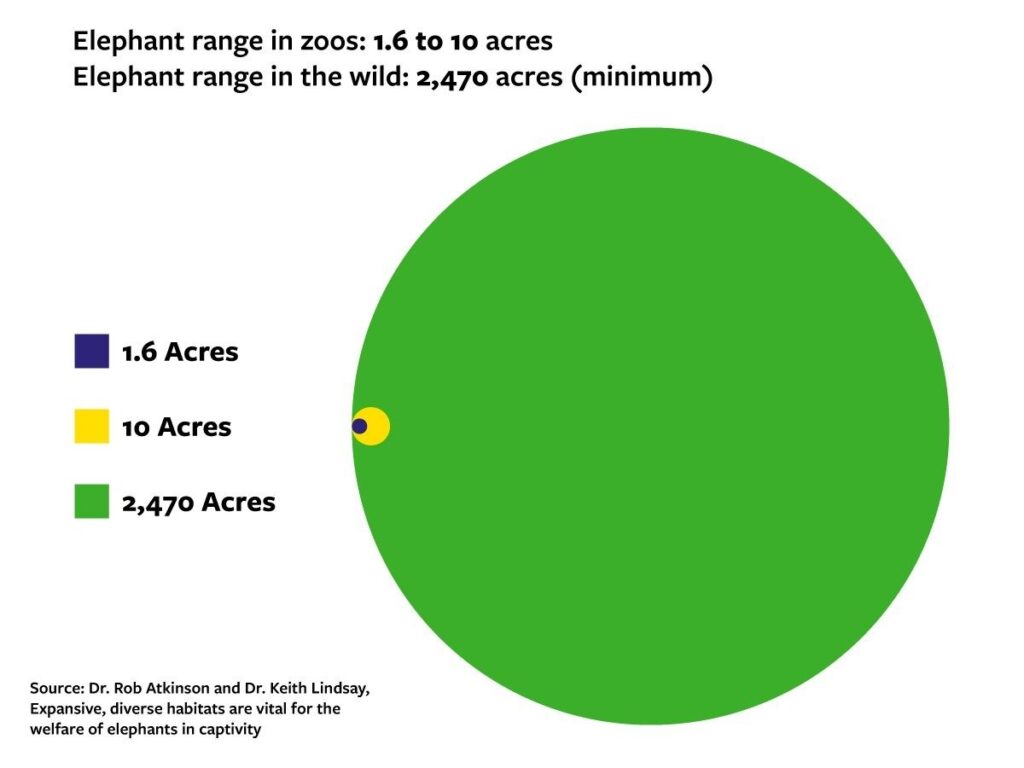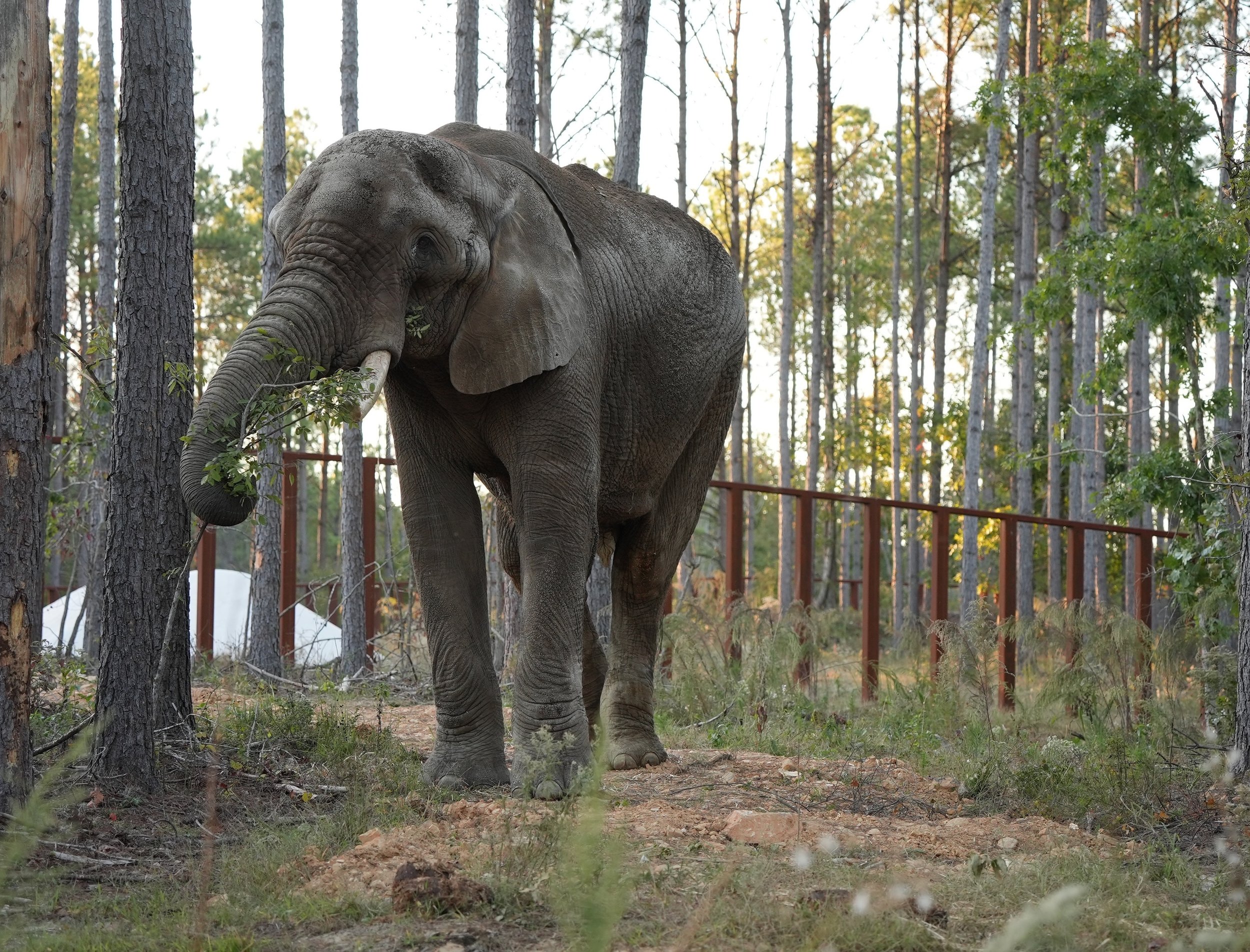The compassionate move comes after modern research into animal welfare has shown that elephants do not cope well in captivity, with zoo enclosures unable to meet the complex needs of elephants.

The Oakland Zoo has successfully relocated its last remaining elephant, Osh, to a sanctuary, marking a significant moment in the evolution of animal care and welfare practices in zoos. Osh, a 30-year-old African elephant, had been residing in a spacious 6.5-acre enclosure at the zoo. However, earlier this year, the zoo announced that it could no longer provide the optimal welfare and social conditions that elephants require. A representative from the zoo expressed that the existing space was inadequate for the elephants’ complex social needs, prompting the decision to move Osh to a sanctuary.
In a carefully coordinated effort, the zoo’s animal care team embarked on a 46-hour road trip to deliver Osh to The Elephant Sanctuary in Tennessee. With Osh’s departure, the Oakland Zoo is now without elephants for the first time in 75 years and has no immediate plans to acquire another one. Instead, the zoo intends to take this opportunity to “reimagine the future of the elephant habitat,” focusing on the well-being of its remaining animals.
Animal welfare group In Defense of Animals praised the Oakland Zoo for prioritizing Osh’s health and needs. Dr. Marilyn Kroplick, president of the organization, stated that Osh’s move to a sanctuary signifies a pivotal change in the way zoos operate, suggesting a shift toward more compassionate practices that embrace modern scientific understanding of animal welfare. Dr. Kroplick highlighted that Oakland Zoo is only the second zoo in the U.S. to recognize that even a large exhibit is insufficient for the needs of elephants, underscoring the growing concern among animal welfare experts about the space limitations faced by elephants in captivity.

Research has shown that wild elephants roam in areas vastly larger than even the most extensive zoo enclosures. A recent study co-authored by wildlife biologist Dr. Keith Lindsay revealed that wild elephants inhabit spaces that are 1,000 to a million times larger than the average zoo enclosure. Courtney Scott, an elephant consultant for In Defense of Animals, emphasized that the lack of space in zoos leads to physical and psychological issues, causing elephants to age faster and often die at half the age of their wild counterparts.
Moreover, studies have pointed to concerning trends in captive elephant populations, including high rates of stereotypic behaviors and psychological problems, as well as alarming infant mortality rates in breeding operations. Reports have indicated that up to 40 percent of infant elephants in zoos do not survive past the age of five, raising further ethical questions about the practice of keeping elephants in captivity.
The relocation of Osh to a sanctuary aligns with a broader movement towards improved welfare standards for elephants in zoos. As awareness grows regarding the ethical implications of captivity, the Oakland Zoo’s decision reflects a commitment to compassionate care for animals. In fact, it makes Oakland Zoo the 41st zoo in the U.S. to close or pledge to close its elephant exhibit, a testament to the evolving perspective on the needs of these majestic creatures.
